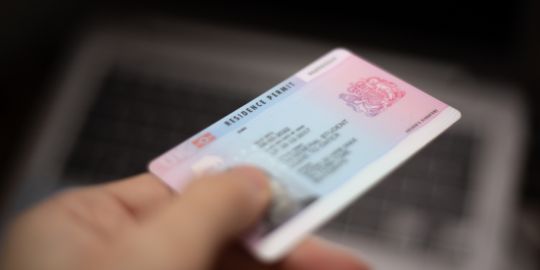Congratulations – A moment before signing the contract
I advise you to check the following details before signing the purchase contract and transferring payment:
Know thy neighbours: what are the boundaries of your intended plot made of? Road as a boundary? Consider traffic, architectural stability and risk of future expropriation.
Traffic – is it a tiny road that leads to an unimportant village? Or does this road connect two highly touristic towns which will turn a seemingly quiet road into a source of incessant noise in the high season? Note: the ‘high season' in Greece can last a long time, in many places starting already in May and until Septembe
Architectural stability and extra costs – is your house going to be situated beneath a road? Check if the road has proper foundations. I have personally known a neighbour who has had the road above their plot collapse on their newly-built home. I myself have had to invest in a supportive concrete wall for the road above my house. It doesn't mean you shouldn't buy this plot – but you should be aware of the extra costs you may incur for supporting the road against collapse.
Risk of future expropriation – you may check this with your real estate agent or the seller, depending on how reliable they are. Better yet, you should check this directly with the municipality or let your Greek lawyer check this for you.
Olive grove as a boundary?
Very quiet. Activity only during harvest season. Does this kind of silence suit you? The further away your plot is from a town, the greater the chance for the presence of animals – including jackals, snakes and wasps.
Another plot with a building permit as a boundary?
Check what type of building is intended for this plot: is it just one house? Or perhaps several holiday residences that may cause a lot of noise?
Right for easement of the neighbouring plot?
If this is the case, your (future) neighbor has the right to share parts of your infrastructure. This may mean that you share one entry road for both your properties or maybe share a parking space. Ask yourself if this condition suits you.
Topography of the plot
It's important to understand the topography of your desired plot, as it may influence your building costs.
Hillside plot on sloped land? You should take into account extra costs for leveling the ground, additional foundation work (e.g. more concrete, deeper excavations) and for landscaping against mudslides (e.g. waterproofed and drained retaining walls).
Trees or an olive grove in your plot? You may need to move some trees in order to free up space for the house. Consider extra costs for either cutting them down or – preferably in my opinion – moving them to a new place within your plot. Sometimes you can also arrange their sale.
Access by car – is the road leading to your plot paved or unpaved? In winter, unpaved paths may turn very muddy; will you still be able to access your plot with your type of vehicle?
Local infrastructure
It's best to know in advance what local infrastructure is – or is not – going to be available at your future plot and to what extent. Everything can be solved, but it may entail higher costs that you should be aware of in advance. Think about:
Communication – will you be entitled to cable internet (or a landline)? Is there cellular signal for your mobile phone?
Where I live, I have mobile signal only in one room - that's okay for my needs. As for internet, I have been informed that Cosmote (one of the country's biggest telecommunications companies) will not install cable internet or even a landline of any kind at my house. Apparently, this is because my house is more than 200 meters away from the center of the village [this is a fairly new law, as a few neighbours who arrived the year before me did get cable internet]. For me, the only solution was the much costlier satellite internet.
Electricity – if you've settled for a secluded plot far away from human habitation, bear in mind that installing electrical cables over greater distances will entail significantly greater costs accordingly.
Water – as is the case for electricity, so is the case for the water pipes. You may need to identify the nearest junction box and consider extra costs depending on the length of digging required for the new pipes to reach your house.









